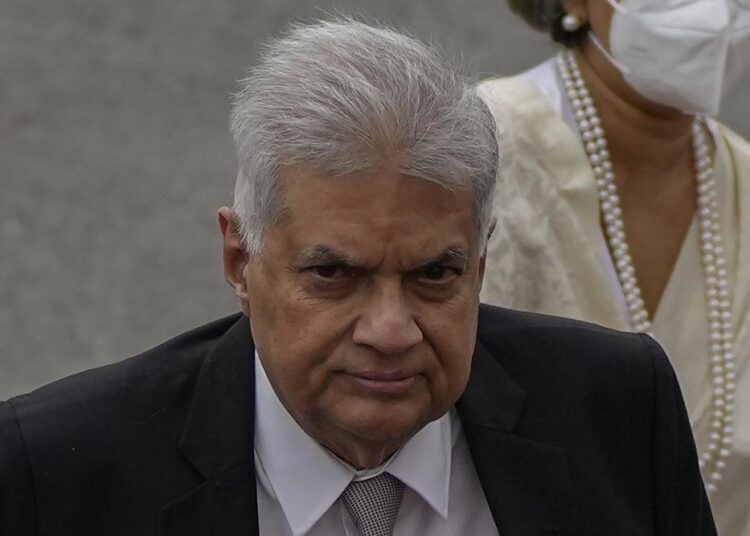COLOMBO, Sri Lanka — Sri Lanka’s new government plans on Tuesday to present an amended budget for the year that slashes expenses and aims to provide relief to people hit hard by the country’s economic meltdown, according to AP.
President Ranil Wickremesinghe, who is also the finance minister, will present the budget in Parliament, which will voted on it after a debate.
The government is negotiating with a visiting International Monetary Fund team on a programme to rescue Sri Lanka from its economic crisis. The government is also preparing to negotiate a restructuring of foreign loans Sri Lanka is unable to repay because of a severe foreign exchange shortage.
Prior to the visit, the IMF said in a statement because Sri Lanka’s public debt is unsustainable, the IMF’s executive board will need assurances by Sri Lanka’s creditors that debt sustainability will be restored before any bailout programme begins.
Sri Lanka’s total foreign debt exceeds $51 billion — of which it must repay $28 billion by 2027.
The IMF delegation is expected to conclude its visit Wednesday and the government hopes to reach a preliminary agreement by then.
Sri Lankans have faced acute shortages of essentials like fuel, medicine, and cooking gas for months. Though cooking gas supplies were restored through World Bank support, shortages of fuel, critical medicines and some food items continue.
Long fuel lines are reappearing after a quota system seemed to have brought them under control over the past weeks.
“I thought things are improving,” salesperson Asanka Chandana said. “For several weeks in May and June, we faced severe hardships, but things were getting better over the last two weeks after the introduction of the quota system. Now it looks like the shortage is still there and we are back to the square one.”
Power and Energy Minister Kanchana Wijesekera said lapses in distribution, delays in unloading, and payments for orders by fuel stations have created long lines. He said the issues will be sorted within days.
The new budget comes amid a relative calm following months of public protests that led to the ouster of Wickremesinghe’s predecessor Gotabaya Rajapaksa and his family members from power. Protesters accused the once-powerful Rajapaksa political family of being primarily responsible for the economic crisis through corruption and mismanagement.
Rajapaksa fled the country in July and resigned after protesters stormed his official residence. He is now in Thailand.
Party leaders say Rajapaksa is expected to return from exile early in September and have asked Wickremesinghe to provide him with security and facilities to which a former president is legally entitled.
Wickremesinghe, who was elected president in Parliament mainly through the votes of Rajapaksa’s loyalists, has since cracked down on protesters, arresting leaders and those occupied the president’s official residence and other key state buildings at the height of the demonstrations.
He also had the protest site opposite the president’s office dismantled.






Discussion about this post